✨ Patterns That Speak: Building Confidence & Connection with Your Horse

Want to know what YOUR HORSE thinks you’re asking for? How they interpret your cues? Or — if you use R+ — what THEY think they’re being rewarded for?
So often, there’s a gap between what we intend and what they perceive. It’s in that gap where behaviors fall apart, or never end up looking the way we imagined.
There’s a powerful way to bridge that gap — working patterns. Not just dressage tests or obstacle courses, but patterns with visual & tactile feedback that help both you and your horse see what’s really going on.
What I Mean by Feedback Patterns
These are setups using physical elements in the arena or on the ground — poles, mats, cones, barrels, rings (like hula hoops, with safety modifications), targets.
- Poles on the ground help clarify things like step placement, rhythm, and how your cues are being received.
- Mats and targets can give tactile feedback.
- Chalk or paint markers offer visual feedback — not for the horse necessarily, but incredible for us to see what we aske...
My Secret to Happy R+ Horses under Saddle? ✨
"My secret to happy horses under saddle?" It’s all about providing the right value and volume of reinforcement! For new riders, inexperienced or green or horses, or horse who are over aroused or starting their positive reinforcement journey, the right reinforcer, such as hay or another high volume low value one can be a game-changer!
Yes, you read that right: Hay can be fed from the tack! My students and I use it all the time with young horses or those new to clicker training. It’s not forever, just until they learn to be at ease receiving food under saddle.
Remember: Always get permission before using hay under-saddle, especially in arenas or yards. With a little practice, it's easy to minimize any mess.
Here's how it works...
The little gray horse listens for his favorite word or click, then if he doesn't receive another cue to carry on or do something different, he settles into a soft default position and waits for the cue that the food is coming. This brings a ton of comfort...
🐴 If Horses Could Talk...Could doing Less Bring You Closer to your Horse?
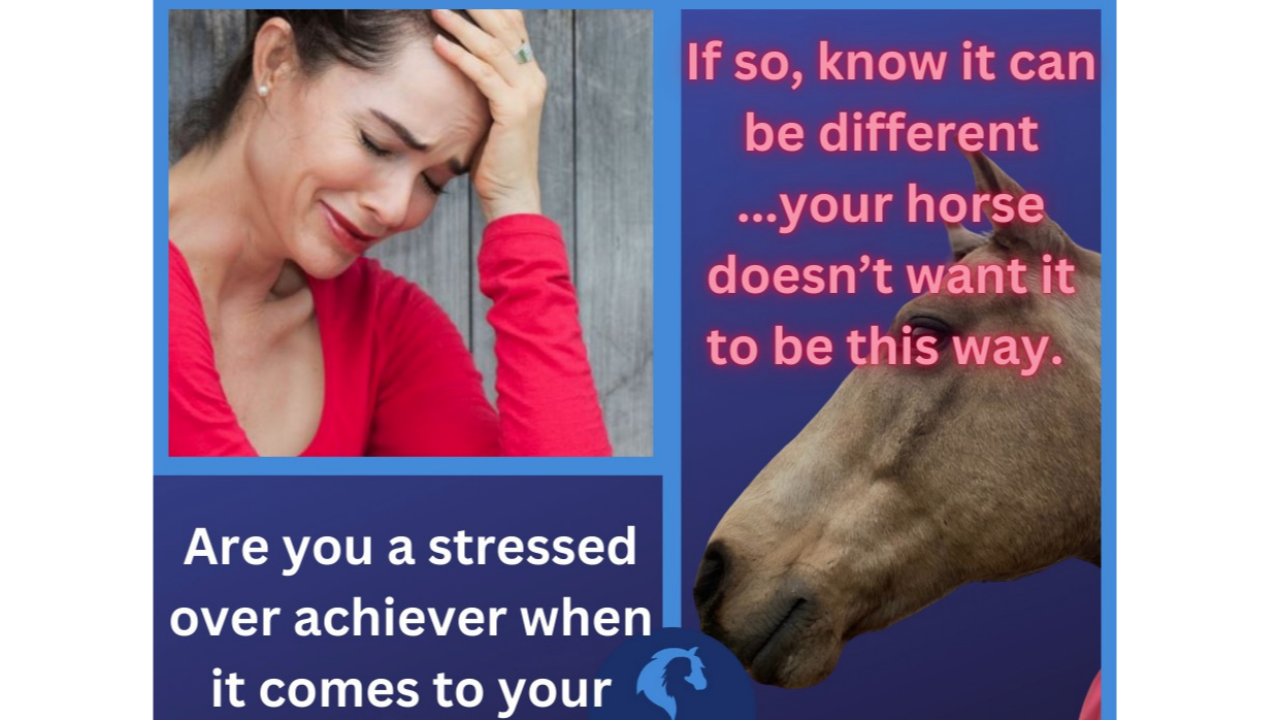
Yes, I jest
-
their health
-
their performance
-
their living situation
-
our relationship with them
…can be impossible, exhausting, and even maddening. And sometimes, maybe it’s worth asking ourselves, “Am I doing this for you, my...
Calm Before the Storm can be Reality for You and your Horse
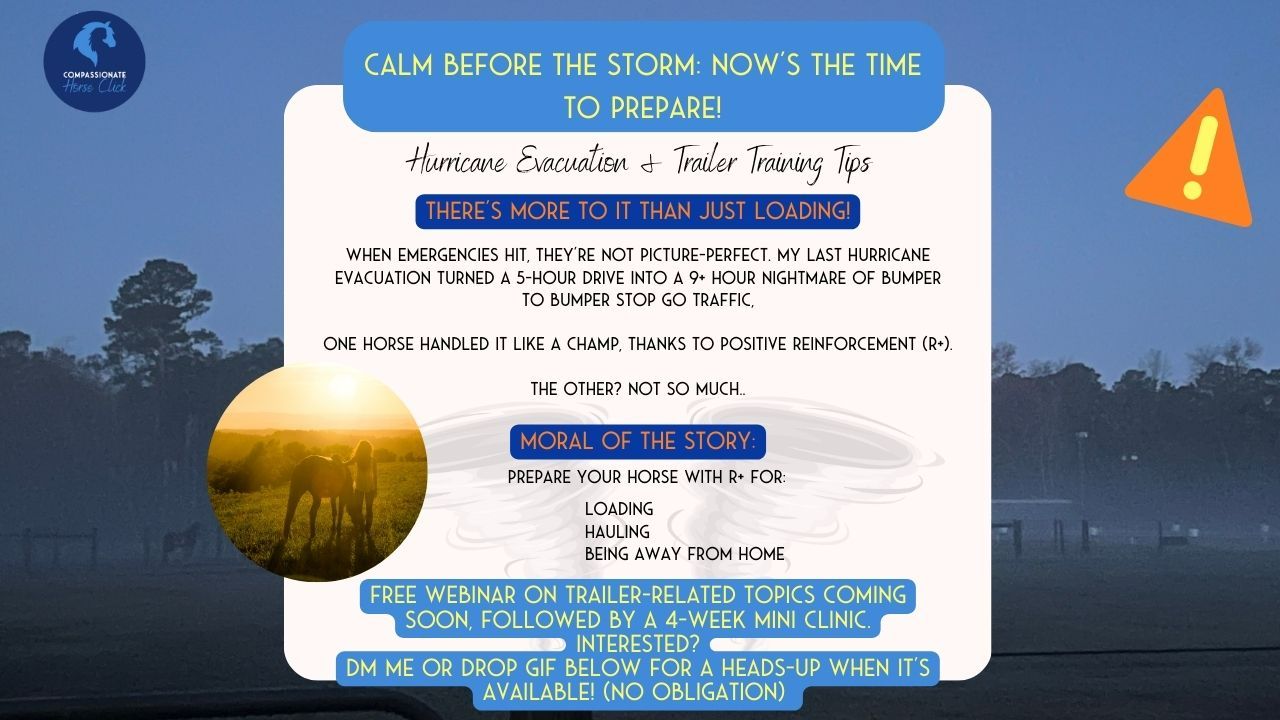
"A strained smile, a tentative way, and a worried look—that’s what I saw on the man in the rearview mirror as I pulled the horses down our drive, leaving my husband and dogs (blue heelers) behind. Up until that moment, I thought this evacuation was a load of crap, an aggravation and a waste of time. But seeing my rock of a husband’s face waiver as we left, I started to wonder: Would things ever be the same?
The photos that popped up in Google inspiring me to write this post? They capture my last hurricane evacuation, driving away from the farm to take refuge in Georgia, thanks to generous friends of a friend.
What can't be seen seen in the photos of that time is the calm before the storm (horses loading well, trailer ready to go just needing a few quick check lists reviewed—or the flooding devastation that left my husband stranded, rescuing every animal he could, including feeding the neighbor's cattle... with our expensive horse hay! (Yes, he and the bull became besties by the en...
📅Busy Schedule? Still Want Horse Training Feedback & Inspiration?
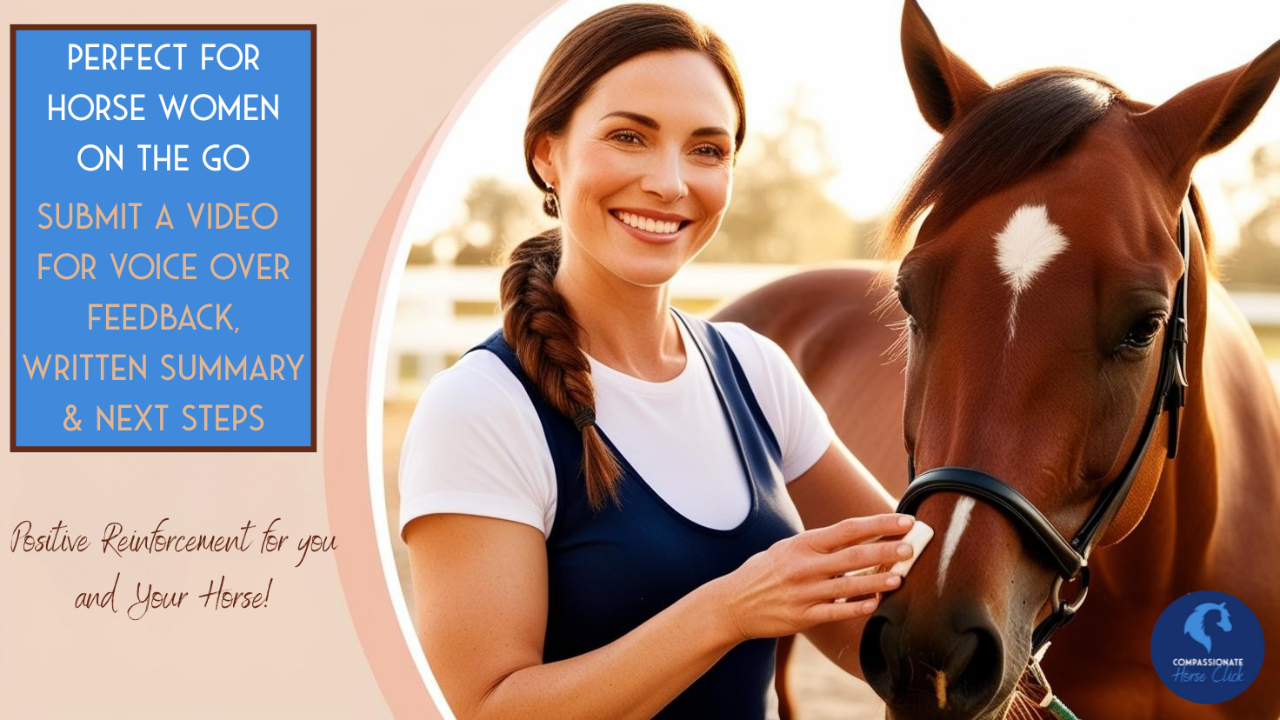
🌸REDISCOVER CONNECTION WITH YOUR HORSE🌸
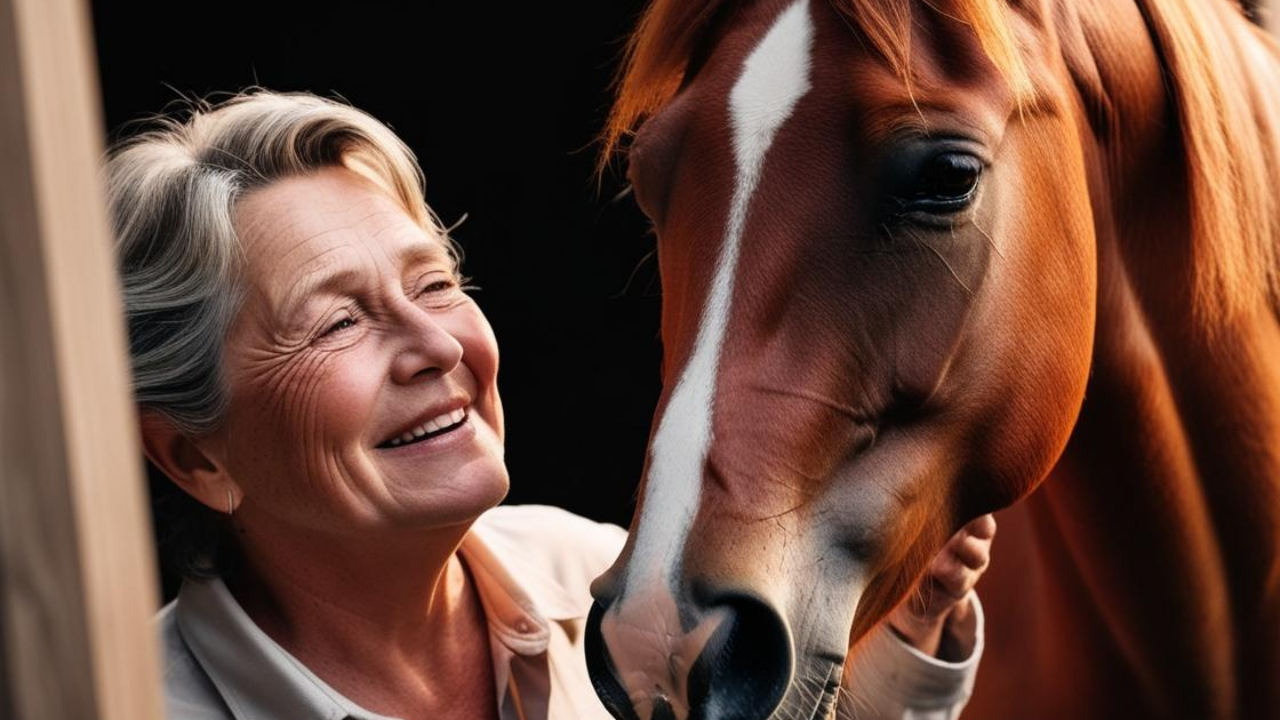
Beyond the Saddle
"It's not about what you can do, but what you choose to do."
Not that there’s anything wrong with riding or to say that you’ll never get to ride your horse again, but given that there are times when we simply cannot...
So often, it’s not about whether our horse *can* do something; it’s about whether it’s *fair* to ask it of them—and of ourselves. Many kindhearted equestrians, particularly women in middle age or older, feel the pull to *do X* with their horse, driven by the ticking of time and the desire to create memories while they still can. Sometimes it's the horse’s age that limits them; sometimes it’s our own.
It’s a bittersweet reality: the years bring both blessings and burdens. Family responsibilities, changing physical abilities, and the unyielding biological clock can make the dream of riding feel distant. And yet, our horses are still there—beautiful, present, and ready to connect.
My own experience as a lifelong equestrian has taught me that true...
🐘 What Elephants Teach Us About Trust—and What That Means for Our Horses

Elephants, Enrichment and the Power of Positive Reinforcement
I came across a fascinating study recently (thanks to Rachel Bedingfield 🙏) that beautifully supports something many of us have seen with our own horses:
When animals associate their experiences with something positive, they become more optimistic and resilient—even in uncertain situations.
Here’s what the researchers found:
🧠 Elephants used past experiences—and the emotional value of those experiences—to make decisions about ambiguous situations.
🐘 They showed a clear "positive bias":
- They approached an ambiguous positive cue 3x more often, and
- Responded to it twice as quickly compared to a cue associated with a negative experience.
In contrast, when the ambiguous cue was associated with something negative, they were slower and less likely to engage.
🐴 Why This Matters for Our Horses
This is the emotional groundwork of what we do every day with compassionate, positive reinforcement (R+)...
💙 Reflections from the Round Pen 💙

Standing by the round pen, I found myself deep in thought…“Should this horse be further along by now?” I wondered.
But then I reminded myself, “Nope, he’s exactly where he needs to be, considering his journey and where we started.” %
And yet, a small voice crept in, “But what would other people think if they didn’t know the whole story? Would they think all of this training has been a waste?
Just as quickly, my heart and soul answered: “NOT!” beating back that ego-driven doubt.
🛑HARD STOP.
Thankfully, my higher self took over, reminding me how far this horse has come—from terrified to trusting, from panicking over basic handling to calmly accepting healthcare. This horse, who once feared even a light drizzle, now has the confidence to be ridden in the rain. Watching him in this moment, I couldn’t help but reflect…
- What if we all focused on how far we and our horses have come instead of how far we still have to go?
- What if we focused on the Gain, not the Gap (thank you,...
Interested in positive reinforcement but don't want to leave your Conventional Horse Training Skills behind??? 🐴
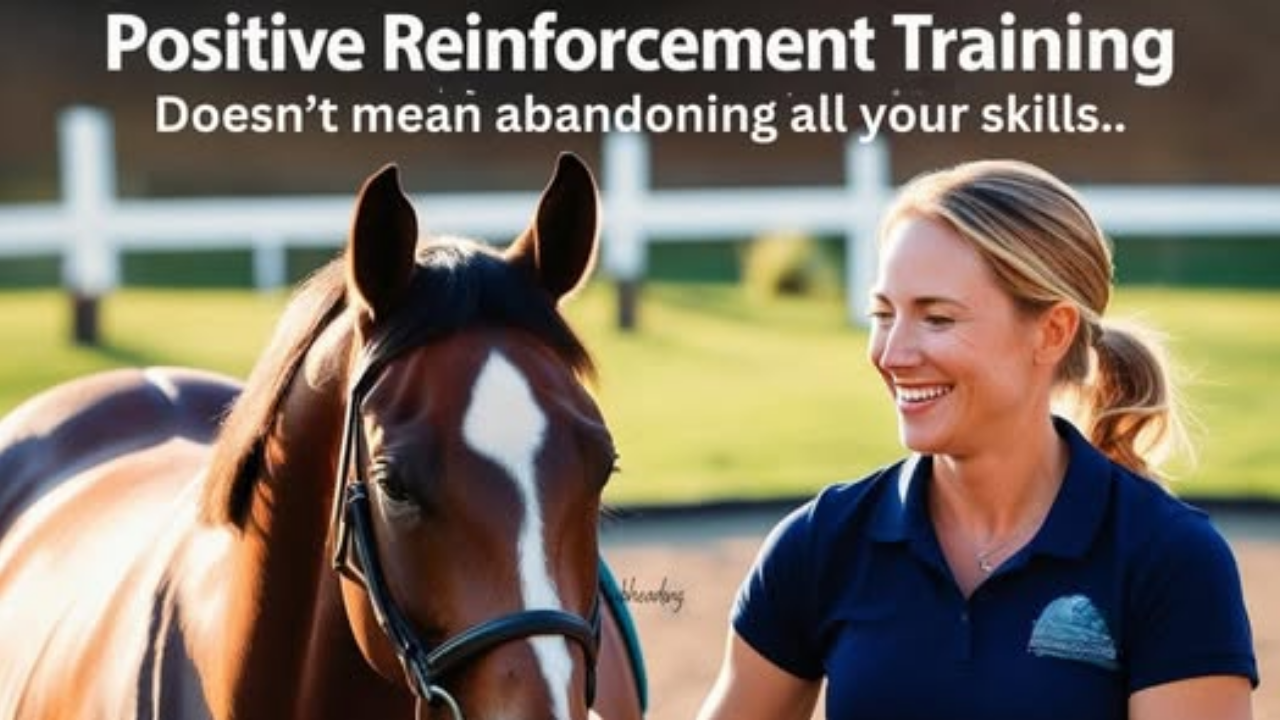
You don't have to! You can use positive reinforcement selectively and begin to experience the power of positive while enhancing your connection, and improving your horse’s trust, confidence and well being. No need to wait to dip your toe in and get started.
Exploring compassionate training techniques doesn’t mean forgetting everything you already know, BUT IT CAN HELP YOU CLICK WITH YOUR HORSE IN A WHOLE NEW WAY.
My Advice for conventional equestrians interested in exploring R+:
- Choose one behavior, just one and shape or reshape it using reward based training.
This is a gre...
Want to Make the Most of every Training Session with your Horse? 🐴✨
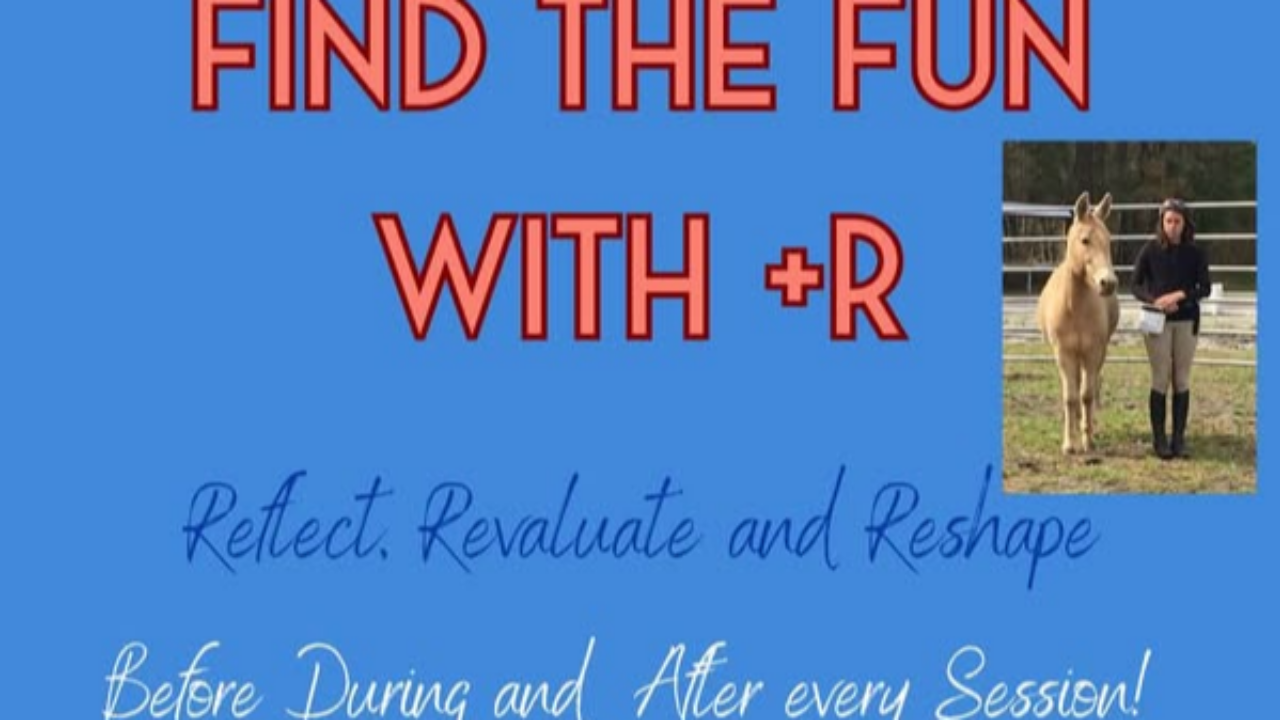
-
Before: Set your intentions and visualize various training plan options. (Let go of expectations)
-
During: Stay present, keep it light hearted and playful and adjust your approach as needed based on your horse’s responses.
-
After: Reflect on what worked and what you’d like to see happen differently and remember to be grateful for the time that you GET to spend with your equine friends!
+R for Practical Horse People Live Clinic in Burgaw NC April 4-6 https://www.compassionatehorseclick.com/clinics-and-events

